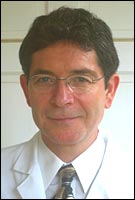 Dr. Harold Koenig (photo) is co-director of the Center for Spirituality, Theology, and Health at Duke University Medical Center, where he is also Professor of Psychiatry and Behavioral Sciences, and Associate Professor of Medicine.
Dr. Harold Koenig (photo) is co-director of the Center for Spirituality, Theology, and Health at Duke University Medical Center, where he is also Professor of Psychiatry and Behavioral Sciences, and Associate Professor of Medicine.
In this lecture, Dr. Koenig makes a connection between religion/spirituality and mental and physical health.
Here are the highpoints.
- A religion-medicine connection isn’t new or unnatural.
- Many patients are religious and use it to cope with illness.
- Religion is related to mental health social support, and health behaviors.
- Better mental health, social support, and health behaviors are related to better physical health.
- Thus, religion is related to physical health.
- The relation is moderate in strength but has a huge impact.
- There’s growing evidence that the relationship may be causal.
- Religion affects coping with illness and medical decisions.
- Therefore, physicians should communicate with patients about these issues.
- But they should respect the boundaries and limits of the patients’ beliefs and needs.
The bottom line?
Dr. Koenig concludes by recommending the inclusion of a spiritual history as part of the medical examination.
He was lecturing to a group of physicians, and this accounts for his specific references to medical doctors. However, his comments apply to all healthcare professionals.
7/14/09 18:19 JR